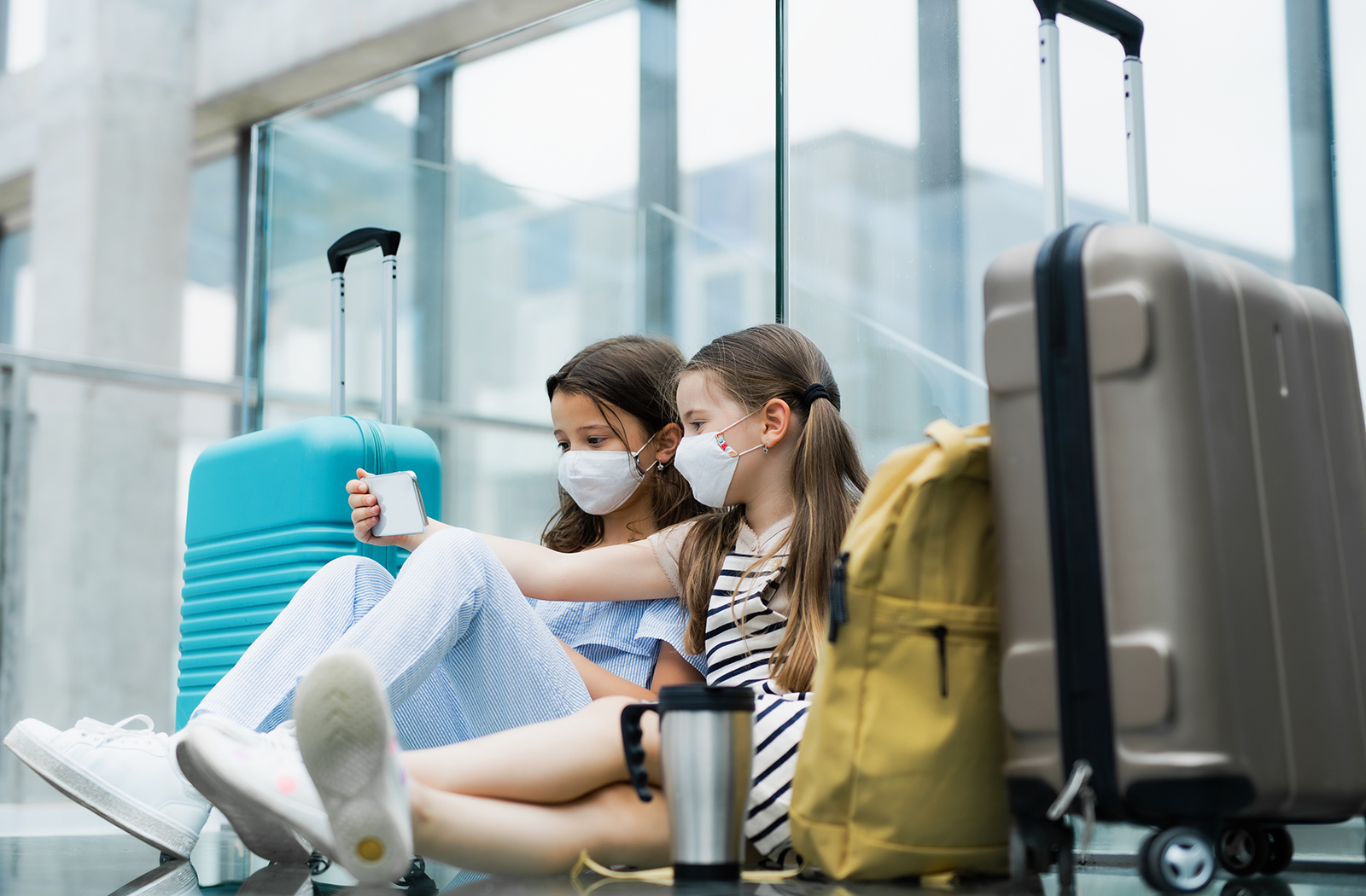
Traveling with Kids for the Holidays During a Pandemic

Although the 2020 holiday season will be unlike any other we’ve experienced — with social distancing, safety protocols and restrictions on gatherings — millions of Americans still plan to travel throughout the holiday season. Gary Kirkilas, DO, a clinical assistant professor of Child Health at the University of Arizona College of Medicine – Phoenix, discussed his concerns about holiday travel with kids.

Also, parents should consider the people they will be visiting. If it includes high-risk individuals like grandparents, the risks likely outweigh the benefits. With rapidly rising numbers of COVID-19 infections, it’s not surprising that the CDC has recently released an official recommendation calling for people to stay home and avoid travel this holiday season. While difficult, this really is the best way to protect your family and others from the COVID-19 virus. However, if you do decide to you travel, please follow some of the quick tips below that will help minimize some of the risks you’ll face.
Have your family get their flu shot. Last year, we saw a record number of children from ages 0-4 years that required hospitalization from the flu. Getting a flu shot at least two weeks before travel will give you assurance that at least you have some protection against also getting the flu.
Try to travel by car if possible. While the airline industry has taken amazing steps in mitigating COVID-19 transmission (HEPA air filters, air exchange, electrostatic spraying), traveling by car will limit your contact with the public. In addition, the road trip experience can be a great way for older children to see new places. During any rest stops, remember to wear a mask and wash hands with soap and water for 20 seconds. Also, consider packing your own food and snacks.
If you must fly, try to look for direct flights that will limit the need to change planes and walk through terminals. In addition, the shorter the flight, the better — as experts state that longer flights dramatically increase your likelihood of infection. Keep your mask on for the entirety of the flight and consider opting out of meals. Lastly, bring disinfectant wipes to sanitize all the high-touch areas.
Don’t forget to pack masks and hand sanitizers. Along with items such as toothbrushes, diapers and the pack’n’play, parents will need to make sure they tote along those important pandemic essentials. Pack two masks per child in case one is soiled or lost. When packing hand sanitizer, include a small dispenser that can be stored in a purse or backpack, as well as a larger container for refills. Ensure that the hand sanitizer contains at least 60 percent alcohol for effectiveness.
Get a COVID-19 test 5-7 days before you leave. While being tested is just a snapshot in time (a negative test today does not necessarily mean you could not test positive tomorrow), it can pick up asymptomatic carriers of COVID-19. This is especially important because children who test positive for COVID-19 were asymptomatic 15 percent to 50 percent of the time. If your family tests positive, you will need to cancel your travel plans and isolate for 10 days. If negative, try to quarantine as much as possible prior to your travel date to avoid any new exposures.
Hopefully, limiting travel and following the above tips will ensure everyone has a happy and safe holiday season this year.
Topics
About the College
Founded in 2007, the University of Arizona College of Medicine – Phoenix inspires and trains exemplary physicians, scientists and leaders to advance its core missions in education, research, clinical care and service to communities across Arizona. The college’s strength lies in our collaborations and partnerships with clinical affiliates, community organizations and industry sponsors. With our primary affiliate, Banner Health, we are recognized as the premier academic medical center in Phoenix. As an anchor institution of the Phoenix Bioscience Core, the college is home to signature research programs in neurosciences, cardiopulmonary diseases, immunology, informatics and metabolism. These focus areas uniquely position us to drive biomedical research and bolster economic development in the region.
As an urban institution with strong roots in rural and tribal health, the college has graduated more than 1,000 physicians and matriculates 130 students each year. Greater than 60% of matriculating students are from Arizona and many continue training at our GME sponsored residency programs, ultimately pursuing local academic and community-based opportunities. While our traditional four-year program continues to thrive, we will launch our recently approved accelerated three-year medical student curriculum with exclusive focus on primary care. This program is designed to further enhance workforce retention needs across Arizona.
The college has embarked on our strategic plan for 2025 to 2030. Learn more.